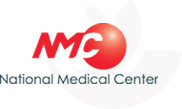
Healthcare
Medical Counseling and Coaching
Doctors and Medical Supplies are Desperately Needed Among Refugees
There are almost 32,000 North Korean refugees in South Korea, but most of them hesitate to reach out for help because of cultural barriers and fear of discrimination. In fact, 9 out of 10 North Korean refugees arrive with untreated physical illness and Post-Traumatic Stress Disorder (PTSD), but many fear going to the hospital.
That's why we've discovered that the people who are best equipped to help North Korean refugees are North Korean refugees themselves.
Every week for 6 months, North Korean refugees who aspire to counsel fellow refugees come to our class to develop and practice their counseling skills. Once they pass the written and oral exams, they become the world's first and only certified North Korean refugee counselors. Thus far, we have helped license more than 220 counselors.
These counselors guide their fellow refugees through the South Korean medical system so that they can get the treatment they need in addition to providing basic mental health services. For some refugees who do not receive any visitors, these counselors become their only family and friend.

Our Network of Five Hospitals Ensure Refugees Receive the Best Care Possible






HEAR THEIR STORIES

Even after their physical needs have been taken care of, many North Korean refugees struggle with depression, anger management, and low self-esteem — they had been trained to not trust people back in North Korea, many of them still have family members left there, and they frequently face discrimination in South Korea. These layers of distress and instability cloud refugees' enormous potential. My role is to help them remember the strength and resilience they had — and still have, otherwise how could they have arrived here in the first place — inside and realize themselves what they could be, what kind of lives we can lead if we all choose to change our perspectives.
M. Kim (Counseling Coach)

I lost both my parents when I was 12. Since then I've struggled to support myself, and I think during that process I became emotional, intolerant, and angry. The coaching experience literally molded me into a less picky and more generous person. I hate less and I've discovered that I too have dreams. Who would have thought that I would be a middle-aged student? Now I am auditing courses and discovering a passion for academia. It's truly a miracle.
K. Kim

I've had terrible back pain since I was in North Korea. So when I entered South Korea, I thought I could finally have my back treated. When I went straight to the hospital though, I wasn't sure where exactly to go to; when I asked for directions, people stared at me or insulted me because of my North Korean accent. After that I didn't want to go to the hospital anymore. So you can imagine how happy I was when I learned about Saejowi's counselors. It was the first time I felt like I was treated like a decent human being. Now I have a place to go to when I'm sick.